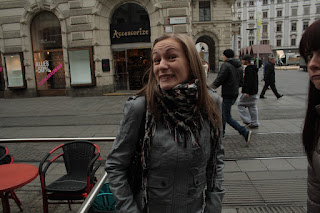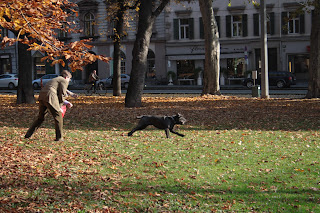
Interviewers: Bulbul Mukherjee and Katie McDonough.
How did the project start?Well, the need to do something was obvious. Statistic numbers were talking for themselves.
*The biggest challenge was not only to help protecting women, but also to tell people that domestic
violence is not OK, it's not a privet business of every family. It is wild. We definitely needed to take some actions about it.
What action are you taking to help women?First of all, our project is oriented mostly on men and boys. We want to educate them, because they are
an integral and very significant part of violent situations happening at home. We want men to be involved in this to prevent violence not to create it.
We also create supporting trainings for women.
What is the biggest challenge to achieve your goals?Cultural stereotypes, no doubt. Many people truly believe that being abused is a normal part of everyday life.
What kind of trainings? Can victims of domestic violence find any help there?Yes, sure. During our training we teach men and women about human rights. The rights of freedom and the right on health. The importance of every single human personality and there is always a way to solve any problem without physical violence.
We also educate men what to do when they hear something bad is going on behind neighbor's doors. Our concept is extremely simple - just ring the bell. Ask for something usual, simple, maybe even obviously ridiculous! Just make them see that people hear and don't like what's going on.
Victims of domestic violence help to spread information as well. They start feeling much better helping other women.
How do you promote your movement? Of course, the internet is very powerful nowadays, but a lot of people in India may not have it. How to make them hear?Yes, you are right. Internet is not available for everyone in India as, for example, in European countries.
That is why we split our budget in four equal part: one to supply TV commercials, second part for billboards on the streets, third - for maintaining trainings, and the last part - for the Internet.
What are your plans for the near future?We are working really hard on getting police involved. We are organizing special trainings for police officers.
We want to educate them as well that it is not a private business of a family. Women deserve to be free from violence, they just need someone to help them on this way. And police is meant to be protecting people.
*Around 35 percent of Indian women suffer from physical violence at the hands of their partners while nearly 40 percent men and women think that it is sometimes or always ‘justifiable’ for a man to beat his wife (UN Women report on Progress of the World’s Women: In Pursuit of Justice, 2011-2012)
 Photo by Stanislav Miler
Photo by Stanislav Miler






























